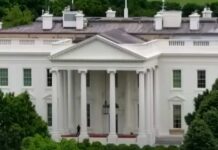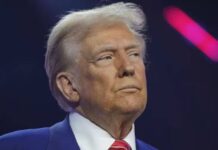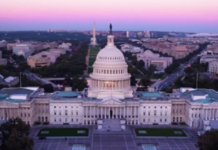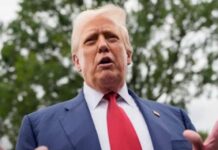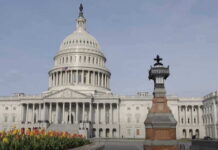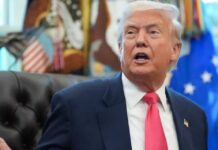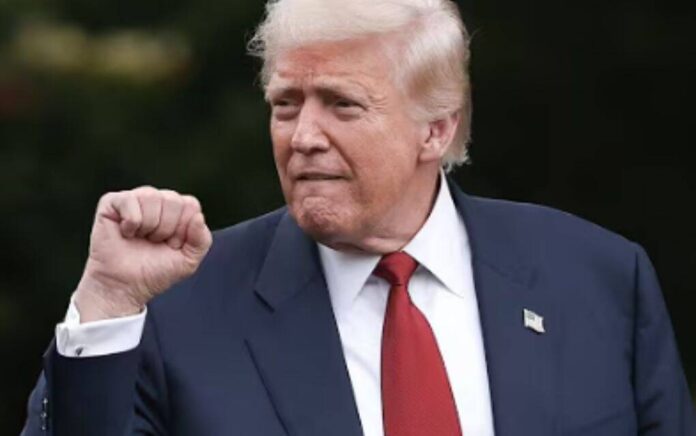
Donald Trump is ready to change things up. That’s why he and his administration are scheming behind the scenes.
And a massive U.S. city has been targeted by the Trump admin for this groundbreaking plan.
President Donald Trump is taking his fight against urban crime to the next level, zeroing in on New Orleans as the potential next target for a major federal crackdown. Speaking from the Oval Office on Wednesday, Trump laid out his vision with characteristic swagger: “We’re making a determination now, do we go to Chicago, or do we go to a place like New Orleans, where we have a great governor, [Republican] Jeff Landry, who wants us to come in and straighten out a very nice section of this country that’s become quite tough, quite bad?”
The Crescent City, famous for its jazz and Mardi Gras, has been battered by violent crime, leaving residents desperate for solutions. Trump’s promise is bold and clear: “So we’re going to be going to, maybe, Louisiana, and you have New Orleans, which has a crime problem. We’ll straighten that out in about two weeks. It will take us two weeks — easier than DC.” His confidence stems from his ongoing success in Washington, D.C., where federal agents and National Guard troops have been cleaning up the streets since August 7, racking up nearly 1,800 arrests, including three m*rder suspects recently nabbed on warrants
Unlike the stonewalling Democrats in Chicago, Louisiana’s Governor Jeff Landry is all-in for Trump’s anti-crime push. Landry’s already sent 135 Louisiana National Guard members to D.C. to support the president’s efforts, showing what real leadership looks like. This stands in sharp contrast to the obstruction from Illinois Governor J.B. Pritzker and Chicago Mayor Brandon Johnson, who seem more interested in flexing their egos than saving their city from chaos.
Chicago’s crime crisis hit a grim milestone over Labor Day weekend, with 58 people shot – eight of whom were shot fatally. Yet Pritzker, eyeing a 2028 presidential run, had the gall to say, “Chicago does not want troops on our streets,” dismissing Trump’s offer as a “reality game show.” Johnson doubled down, signing an executive order Saturday to block local police from working with federal agencies. “This executive order makes it emphatically clear that this president is not going to come in and deputize our police department,” he declared.
Trump’s not buying the Democrat excuses. He knows who’s really suffering: the people. “We don’t have the support of some of these politicians. But I’ll tell you who is supporting us, the people of Chicago, and I sort of want them to let it be known they have incompetent people,” he said. He’s ready to roll into Chicago the moment it demands action.
“We can straighten out Chicago. All they have to do is ask us to go into Chicago,” Trump reiterated.
In D.C., Trump’s strategy is already working. Since August 11, he’s taken temporary emergency control of the D.C. Metropolitan Police Department and mobilized the D.C. National Guard—moves made possible by the capital’s federal status. The results are undeniable: 92 arrests in a single day, pushing the total to nearly 1,800. This is the kind of decisive action that makes liberals squirm but gives hope to law-abiding Americans tired of dodging bullets.
New Orleans could see a similar surge of federal agents and resources, backed by Governor Landry’s full support. With a cooperative state government, Trump’s team could hit the ground running, avoiding the political roadblocks thrown up by Chicago’s Democrat machine. The president’s claim that he can turn New Orleans around in just two weeks might sound ambitious, but his D.C. track record shows he’s not one to make empty promises.
Chicago’s leaders, on the other hand, are playing a dangerous game. Pritzker and Johnson’s refusal to work with Trump isn’t just petty—it’s a betrayal of their own people. The president’s been clear: he’s ready to act, but he needs the green light. “We’re going in,” he said Tuesday, adding, “I didn’t say when.” The ball’s in Chicago’s court, but Pritzker and Johnson seem more interested in grandstanding than governing.
Trump’s approach is a breath of fresh air for Americans fed up with soft-on-crime policies. His D.C. operation, with hundreds of federal officers backing local police, shows what’s possible when leaders prioritize safety over politics. New Orleans, with Landry’s backing, could be the next shining example of Trump’s commitment to law and order.
The contrast between the two cities is stark. In Louisiana, a Republican governor is ready to partner with Trump to protect his people. In Illinois, Democrat elites are doubling down on defiance, even as their city spirals out of control. Chicagoans are caught in the crossfire, and Trump’s call for them to demand better is a rallying cry for every American tired of seeing their communities crumble.
For too long, Democrat-run cities like Chicago have been left to fester under weak leadership. Trump’s focus on New Orleans and Chicago is a direct challenge to that status quo. While D.C.’s Mayor Muriel Bowser has warmed to a longer-term federal presence, Chicago’s leaders remain stubbornly opposed, even as their city drowns in violence.
This fight isn’t just about crime—it’s about restoring pride and safety to America’s cities. Trump’s D.C. success proves that when the feds and locals work together, criminals don’t stand a chance. New Orleans could be next, with Landry and Trump forming a powerhouse team to take back the streets.
As the president weighs his options, New Orleans looks like the smarter choice. With Landry’s support and a clear need for action, the city could see rapid results. Chicago, meanwhile, remains a question mark, with its leaders betting on defiance over deliverance.
The next few weeks will be pivotal. Will New Orleans become a beacon of Trump’s law-and-order agenda? Or will Chicago’s leaders finally put their people first?
One thing’s for sure: President Trump’s not backing down. With New Orleans in his sights and a proven playbook from D.C., he’s ready to make America’s cities great again—one street at a time.
Stay tuned to The Federalist Wire.


